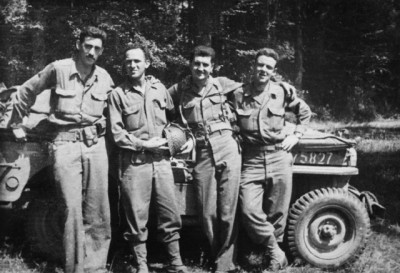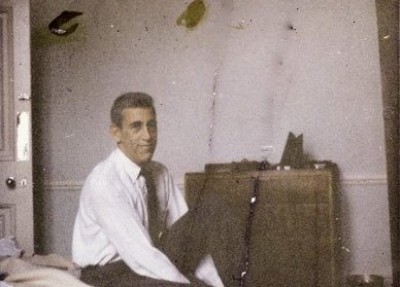
As filmmaking, it’s uninspired. As journalism, it’s shoddy. As biography, it’s muddled. Shane Salerno’s Salinger is all of these things and less — a confusing, meandering and ultimately pointless look into the life of writer J.D. Salinger. The story of the author of The Catcher in the Rye, who spent most of his life in seclusion, is obviously a curious tale, since so much of his later life is veiled in mystery. And while it’s obvious that Salerno — who spent years researching and filming Salinger — is fully engrossed in the topic, the film lacks a clear, focused direction, trying to squeeze too many tangents, stories and interviews into its runtime. The result is a frustrating, scattershot documentary with no obvious thesis and even shakier intentions.

In most ways, it’s easier to list what Salinger does wrong, since it doesn’t do a whole lot right. Early on, we’re told that Salinger (who’s occasionally approximated onscreen by a double who looks distractingly and confoundingly nothing like the man) had a natural distrust for education and being told what is true and what to believe by teachers and the establishment. We’re then subjected to two hours of hearsay and secondhand stories, some told by Salinger scholars and contemporaries, others told by people with obvious axes to grind, most of it rarely escaping the level of pop psychology. His surviving family — his widow, his son, his daughter — are never interviewed, and it’s not clear if Salerno even approached them. Instead, for some unknown reason, we’re left to hear from Martin Sheen and Ed Norton (who shows up for about 10 seconds to read a letter), even though none of them actually knew the man or appear to have any connection to his work. (The trailer’s promise of including such luminous literary critics as Judd Apatow and Danny DeVito is thankfully unfulfilled.) Tom Wolfe shows up to tell a story he heard from True Grit author Charles Portis — a story, mind you, he admits he may not remember correctly — who once accidentally encountered Salinger. Where is Portis to corroborate this story? Who knows. The film would rather have Philip Seymour Hoffman pop up to explain how hard it is to be famous.

The movie never has a good grasp on Salinger the man, sometimes painting him as a fragile genius and other times as a maddening tyrant. Don’t be mistaken, this isn’t for the purpose of illustrating a complex man. Salinger is far too unorganized for that, as its narrative jumps around, occasionally folding in on itself and contradicting facets of the story it just told, while never bothering to flesh out its ideas (if this were a college paper, it’d be covered in red ink). The idea is to detail Salinger’s life as a means of illuminating his writing, but the film fails to convey the importance of his work—and it certainly isn’t brave enough to broach the topic of where his legacy would be if he hadn’t receded from the spotlight of fame. While I didn’t mind watching it, the further I’ve gotten from it, the more its failures and faults become visible. It seems that the Weinstein Company — who are distributing the film — realized this, too, waving a flag of surrender and announcing various cuts and changes to the film. I’m not even sure if the movie I’m writing about will be the one playing in theaters this weekend (thanks for that, Harvey), but I can say that Salinger’s missteps are more than simply cosmetic, and sans some immense overhaul, I imagine there’s little that can be done to save it now. Rated PG-13 for disturbing war images, thematic elements and smoking.
Starts Friday at Carolina Cinemas




How big of a turkey was this film? It’s already on Netflix Instant: http://movies.netflix.com/WiMovie/Salinger/70273611
Hell, you saw it, I didn’t. And you appear to actually like the subject.
The movie is a hunk of junk. The supplemental 700-page biography is a legit success…not that the documentary is going to send people running to seek it out.
With or without the film, I’m not wading into 700 pages on Salinger.
I don’t expect anyone but the die-hard Salinger fans to take the plunge. Still, it’s fitting that a writer whose work doesn’t translate well to the screen has a biography that succeeds and a documentary that doesn’t.
And now Salerno is writing a Salinger biopic for the Weinsteins? Please stop!
Well, we’ve never really seen his work translate to the screen to know if it does.
The one that was made from his work, My Foolish Heart, is awful. Just the prospect of a Catcher in the Rye film is a bad idea and watching something like Zooey‘s bathtub chat for 30-40 minutes or reading aloud long letters is also unappetizing.
Seems like the best thing filmmakers can do is lift certain elements and take them in their own directions, as Wes Anderson does in his first three films.
I don’t think that a 1949 adaptation of a short story is much to go by. Much as I don’t want to see a film of Catcher in the Rye — simply because I don’t want to spend a couple hours in the company of Holden Caulfield — I don’t see why it couldn’t be done.
Short story or not, I think My Foolish Heart shows the core challenge of adapting Salinger’s writing. So much plot-wise is left unsaid or merely alluded to that the screenwriter has to invent a bunch of hooey to hit the 80 minute mark.
A Catcher film could be done, but it would be tricky. (Much as I like Holden’s voice, I’m not sure I want to hear it as voiceover.) Rushmore is the best unofficial attempt I’ve seen.
I think I’d also rather see a Salinger-like character such as Sean Connery’s reclusive author in Finding Forrester than an actual narrative film about Salinger.
I just don’t see that much connection to Rushmore. Maybe it’s just that I don’t spend the film wanting to slap Jason Schwartzman, which is exactly how I feel about Holden Caulfield.
Underachieving student unable to cope with the death of a family member thinks he’s more mature than he is, occasionally wears a red cap, and is prone to embellishment.
I still don’t want to slap him.
I don’t either. Not many Wes Anderson characters I want to slap. Maybe Future Man from Bottle Rocket.
That’s actually an interesting observation about Anderson’s films, you know.
We’ll see if Zoller Seitz addresses the issue.
While I like him (and wish he did the bulk of the reviewing on Ebert’s site, which suffers from no real tone of voice or voices with its seeming endless array of reviewers), I’m betting he doesn’t.